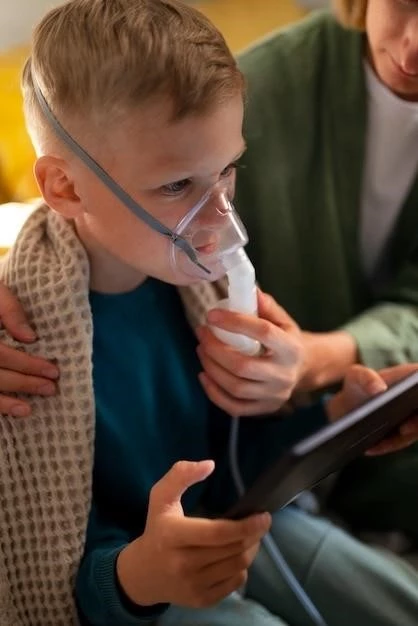Frydman-Cohen-Ashenazi Syndrome
This article explores Frydman-Cohen-Ashenazi syndrome, a rare genetic disorder. It covers symptoms including developmental delay, intellectual disability, speech delay, seizures, spasticity, and hypotonia. Diagnosis involves genetic testing and MRI findings. Treatment focuses on managing symptoms. Genetic counseling is essential. Ongoing research aims to improve understanding and prognosis.
Introduction
Frydman-Cohen-Ashenazi syndrome is a rare genetic disorder characterized by a range of developmental challenges and physical symptoms. This syndrome was first described in the 1980s by Dr. Frydman, Dr. Cohen, and Dr. Ashkenazi, hence its name. Individuals with this condition typically experience global developmental delay, intellectual disability, speech delay, seizures, spasticity, and hypotonia.
Genetic disorders like Frydman-Cohen-Ashenazi syndrome are caused by changes in an individual’s DNA and can be inherited from one or both parents. The specific genetic mutation responsible for this syndrome has been identified in recent years, allowing for more accurate diagnosis through genetic testing.
While this syndrome is considered a rare condition, its impact on individuals and families can be profound. Managing the complex needs of those affected by Frydman-Cohen-Ashenazi syndrome requires a multidisciplinary approach involving healthcare professionals, therapists, and support services. Genetic counseling is crucial for families to understand the inheritance pattern and risks associated with the condition.
Advances in medical research continue to improve our understanding of Frydman-Cohen-Ashenazi syndrome, leading to better diagnostic techniques and potential treatment options. Despite the challenges posed by this genetic disorder, ongoing efforts in the field of genetics and neurology offer hope for individuals affected by this syndrome and their families.
Symptoms of Frydman-Cohen-Ashenazi Syndrome
Individuals with Frydman-Cohen-Ashenazi syndrome exhibit a spectrum of symptoms that impact their physical and cognitive development. The most common symptoms include⁚
- Developmental Delay⁚ Children with this syndrome may experience delays in reaching developmental milestones such as sitting, crawling, and walking.
- Intellectual Disability⁚ Most individuals affected have varying degrees of intellectual disability, which can impact learning and daily functioning.
- Global Developmental Delay⁚ This condition often results in delays in multiple areas of development, including motor skills, language, and social skills.
- Speech Delay⁚ Many individuals have difficulties with speech and language development, which may require speech therapy interventions.
- Seizures⁚ Epileptic seizures can occur in some individuals with Frydman-Cohen-Ashenazi syndrome, adding to the complexity of the condition.
- Spasticity⁚ Muscle stiffness and spastic movements are common, affecting mobility and coordination.
- Hypotonia⁚ Low muscle tone is often observed in individuals with this syndrome, contributing to motor challenges.
These symptoms can vary in severity from person to person and may present additional challenges in daily life. Early identification and intervention play a crucial role in supporting individuals with Frydman-Cohen-Ashenazi syndrome and improving their quality of life.
Diagnosis of Frydman-Cohen-Ashenazi Syndrome
Diagnosing Frydman-Cohen-Ashenazi syndrome involves a comprehensive evaluation that combines clinical assessments, genetic testing, and imaging studies. The following approaches are typically used to diagnose this rare genetic disorder⁚
- Clinical Evaluation⁚ Healthcare professionals will conduct a thorough physical examination to assess the individual’s developmental milestones, neurological function, and overall health.
- Genetic Testing⁚ Molecular genetic testing is a crucial component of diagnosing Frydman-Cohen-Ashenazi syndrome. This testing can identify specific genetic mutations associated with the syndrome.
- Imaging Studies⁚ MRI findings may reveal structural abnormalities in the brain that are characteristic of Frydman-Cohen-Ashenazi syndrome, aiding in the diagnostic process.
- Developmental Assessments⁚ Evaluating the individual’s developmental progress and identifying any delays or challenges can also contribute to confirming a diagnosis of this syndrome.
- Family History⁚ Understanding the family history of genetic conditions and developmental delays is important in diagnosing and assessing the risk of Frydman-Cohen-Ashenazi syndrome.

Due to the rare nature of this genetic disorder, diagnosis may require collaboration among geneticists, neurologists, developmental pediatricians, and other specialists. Early and accurate diagnosis is essential in providing appropriate care and support for individuals with Frydman-Cohen-Ashenazi syndrome and their families.
Treatment Options for Frydman-Cohen-Ashenazi Syndrome
Managing Frydman-Cohen-Ashenazi syndrome involves a multidisciplinary approach aimed at addressing the diverse symptoms and challenges faced by individuals with this rare genetic disorder. While there is no cure for the syndrome, treatment focuses on symptom management, improving quality of life, and providing support for both the individual and their family. The following are key components of the treatment plan⁚
- Early Intervention Services⁚ Early identification and intervention with therapies such as physical therapy, occupational therapy, and speech therapy can help address developmental delays and improve functional abilities.
- Medication Management⁚ Medications may be prescribed to manage seizures, spasticity, and other symptoms associated with Frydman-Cohen-Ashenazi syndrome. Close monitoring by healthcare providers is essential.
- Educational Support⁚ Individuals with intellectual disabilities may benefit from specialized educational programs tailored to their specific needs. Individualized education plans (IEPs) can help support learning and development.
- Supportive Care⁚ Providing a supportive and nurturing environment at home and in the community is crucial for individuals with this syndrome. Family support groups and community resources can offer additional support.
- Physical and Occupational Therapy⁚ These therapies can help improve muscle tone, mobility, coordination, and daily living skills, enhancing overall quality of life.
- Speech Therapy⁚ Addressing speech delays through speech therapy can help individuals improve communication skills and enhance social interactions.
It is important for individuals with Frydman-Cohen-Ashenazi syndrome to have ongoing medical follow-ups to monitor their progress, adjust treatment plans as needed, and address any new symptoms or challenges that may arise. A comprehensive and holistic approach to care can significantly impact the well-being and development of individuals living with this genetic disorder.
Genetic Counseling for Frydman-Cohen-Ashenazi Syndrome
Genetic counseling is a crucial aspect of managing Frydman-Cohen-Ashenazi syndrome as it provides individuals and families with information and support regarding the genetic basis of the condition. Genetic counselors play a vital role in the following areas⁚
- Educational Support⁚ Genetic counselors help families understand the genetic factors contributing to Frydman-Cohen-Ashenazi syndrome, including inheritance patterns and recurrence risks.
- Risk Assessment⁚ By analyzing family history and genetic testing results, genetic counselors can assess the likelihood of other family members being affected by the syndrome.
- Decision-Making⁚ Genetic counselors assist individuals and families in making informed decisions about family planning, prenatal testing, and genetic testing for at-risk family members.
- Emotional Support⁚ Coping with a genetic disorder like Frydman-Cohen-Ashenazi syndrome can be emotionally challenging. Genetic counselors provide emotional support and resources to help individuals and families navigate the complexities of the condition.
- Resources and Referrals⁚ Genetic counselors can connect families with additional support services, healthcare providers, and community resources to enhance their care and well-being.
Genetic counseling sessions are tailored to the specific needs and concerns of each family, helping them make informed choices about their healthcare and family planning. By providing comprehensive information and support, genetic counselors empower individuals and families affected by Frydman-Cohen-Ashenazi syndrome to navigate their genetic journey with confidence and understanding.
Research and Advances in Frydman-Cohen-Ashenazi Syndrome
Ongoing research in Frydman-Cohen-Ashenazi syndrome is vital for advancing our understanding of this rare genetic disorder and improving diagnostic techniques and treatment options. Recent studies have focused on various aspects of the syndrome, leading to significant advancements in the field⁚
- Genetic Studies⁚ Advances in genetic sequencing technologies have allowed researchers to identify specific gene mutations associated with Frydman-Cohen-Ashenazi syndrome, enhancing diagnostic accuracy and genetic counseling.
- Brain Imaging Research⁚ MRI findings have provided insights into the structural differences in the brains of individuals with this syndrome, contributing to a better understanding of the neurological basis of the condition.
- Therapeutic Approaches⁚ Research into potential therapies, including targeted medications and rehabilitative interventions, aims to address the symptoms and challenges faced by individuals with Frydman-Cohen-Ashenazi syndrome.
- Early Intervention Strategies⁚ Studies have highlighted the importance of early intervention services in improving developmental outcomes for individuals with this syndrome, emphasizing the need for timely and comprehensive care.
- Supportive Care Models⁚ Research has explored the effectiveness of multidisciplinary care models that provide holistic support for individuals and families affected by Frydman-Cohen-Ashenazi syndrome, enhancing overall quality of life.
Collaboration among researchers, healthcare professionals, and advocacy groups is essential in driving progress in the understanding and management of Frydman-Cohen-Ashenazi syndrome. By investing in research initiatives and sharing knowledge across disciplines, the medical community aims to enhance the lives of those impacted by this rare genetic disorder.
Prognosis of Frydman-Cohen-Ashenazi Syndrome
The prognosis for individuals with Frydman-Cohen-Ashenazi syndrome can vary depending on the severity of symptoms, the level of intellectual disability, and the presence of associated medical conditions. While this genetic disorder presents lifelong challenges, proactive management and early interventions can significantly impact the overall prognosis. Key factors influencing the prognosis include⁚
- Severity of Symptoms⁚ The range and severity of symptoms experienced by individuals with Frydman-Cohen-Ashenazi syndrome can affect their long-term outcomes and quality of life.
- Early Intervention⁚ Timely access to early intervention services, including therapies and educational support, plays a critical role in improving developmental outcomes and functional abilities.
- Medical Management⁚ Effectively managing seizures, spasticity, and other medical complications can help minimize their impact on daily life and enhance overall well-being.
- Support Systems⁚ Strong family support, access to community resources, and a multidisciplinary care team can positively influence the prognosis and quality of life for individuals with this syndrome.
- Advancements in Care⁚ Ongoing research and medical advancements in the field of genetic disorders offer hope for improved diagnostic techniques, targeted therapies, and better support services, which can contribute to enhanced outcomes.
While Frydman-Cohen-Ashenazi syndrome presents challenges that may impact individuals throughout their lives, the prognosis can be positively influenced by a comprehensive approach to care that focuses on addressing symptoms, supporting development, and enhancing quality of life. By fostering a supportive and collaborative healthcare environment, individuals with this rare genetic disorder can achieve their fullest potential and lead fulfilling lives within the scope of their abilities.
